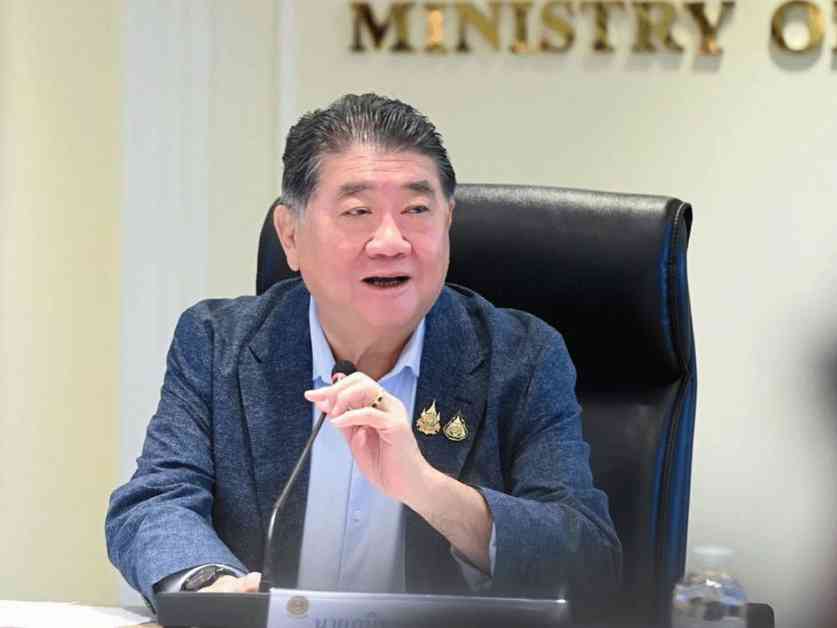As sugarcane farmers in Thailand gear up for the 2023/24 season, there are several cultural considerations that need to be taken into account. From evaluating budgets to ensuring the quality of fresh sugarcane and reducing PM 2.5 dust, farmers are facing various challenges that require careful planning and collaboration.
The Importance of Budget Evaluation
One of the key aspects that sugarcane farmers need to consider is budget evaluation. With the cost of production on the rise, it is essential for farmers to carefully assess their budgets to ensure profitability. The Deputy Prime Minister for Cultural Affairs, Mr. Phumtham Wechayachai, recently spoke about the importance of budget evaluation for sugarcane farmers in Thailand. He emphasized the need for farmers to cut costs while maintaining the quality of fresh sugarcane.
Quality of Fresh Sugarcane
Maintaining the quality of fresh sugarcane is crucial for sugarcane farmers, as it directly impacts their profitability. Mr. Wechayachai highlighted the importance of producing high-quality sugarcane to meet market demands and ensure a competitive edge in the industry. By focusing on quality, farmers can command better prices for their produce and improve their overall revenue.
Reducing PM 2.5 Dust
Another significant challenge that sugarcane farmers are facing is the issue of PM 2.5 dust. This harmful particulate matter not only affects the environment but also poses health risks to farmers and the surrounding communities. Mr. Wechayachai stressed the importance of reducing PM 2.5 dust emissions in the sugarcane industry to protect the health and well-being of everyone involved. Implementing measures to reduce dust emissions can lead to a cleaner environment and a healthier workforce.
In a recent meeting with representatives from four sugarcane farmer organizations, Mr. Wechayachai discussed the need for financial support to help farmers cut costs and improve the quality of fresh sugarcane. The meeting, which took place at the Ministry of Commerce on August 29, 2567, focused on finding solutions to the challenges faced by sugarcane farmers in Thailand.
During the meeting, representatives from the sugarcane farmer organizations, including the Thai Sugarcane Farmers Association, the Sugarcane Farmers’ Cooperative of Thailand, the Northeastern Sugarcane Farmers Institute, and the Thai Sugarcane Farmers Federation, shared their concerns about the high cost of producing fresh sugarcane. They emphasized the need for financial compensation of 120 Baht per ton to offset the challenges they face in cutting fresh sugarcane.
Mr. Wechayachai acknowledged the difficulties faced by sugarcane farmers and expressed his support for their efforts to improve the industry. He highlighted the importance of collaboration between farmers and the government to address the challenges and find sustainable solutions for the future. By working together, farmers can overcome obstacles and ensure the long-term success of the sugarcane industry in Thailand.
In response to the farmers’ requests for financial support, Mr. Wechayachai assured them that the government would consider their proposals and work towards finding a viable solution. He emphasized the government’s commitment to supporting the agricultural sector and ensuring the welfare of farmers across the country.
The Thai Sugarcane and Sugar Industry Office (TSSIO) provided insights into the current state of the sugarcane industry in Thailand. With approximately 200,000 households engaged in sugarcane farming, the industry plays a significant role in the country’s economy. In the 2566/67 season, sugarcane cultivation covered 9.32 million rai, with fresh sugarcane accounting for 70% of the total production and burnt sugarcane making up the remaining 30%.
Despite the challenges faced by sugarcane farmers, there is optimism for the future of the industry. By working together and implementing sustainable practices, farmers can overcome obstacles and ensure the long-term success of the sugarcane industry in Thailand. With the support of the government and industry stakeholders, sugarcane farmers can look forward to a prosperous and sustainable future.




















